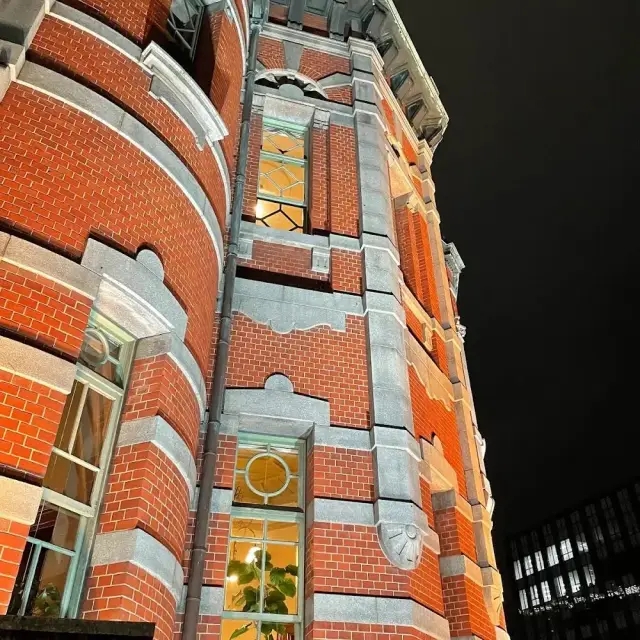https://www.dekitabi.com/itinerary/tenjin-hakata-walking-tour
Fukuoka, a vibrant city in Japan’s Kyushu region, is a treasure trove of historical and cultural sites. From ancient temples to modern museums, Fukuoka offers a unique blend of tradition and contemporary charm. Let’s delve into some of the must-visit spots that showcase the rich heritage of this fascinating city.
Kego Shrine

https://www.dekitabi.com/attraction/kego-shrine
Located in the heart of Fukuoka, Kego Shrine is a serene oasis amidst the bustling cityscape. This Shinto shrine, with its lush greenery and tranquil atmosphere, is dedicated to the deity Kego Daimyojin. Established over a thousand years ago, Kego Shrine is not only a place of worship but also a symbol of the city’s spiritual heritage. Visitors can stroll through its peaceful grounds, participate in traditional rituals, and admire the beautiful architecture that reflects the essence of Japanese culture.
Fukuoka City Red Brick Culture Museum

https://www.dekitabi.com/attraction/fukuoka-red-brick-culture-museum
Housed in a striking red brick building that dates back to the early 20th century, the Fukuoka City Red Brick Culture Museum is a testament to the city’s architectural and cultural evolution. Originally constructed as a government building, it now serves as a museum showcasing Fukuoka’s rich history and artistic heritage. The museum hosts various exhibitions, including works by local artists, historical artifacts, and contemporary art pieces. Its distinctive façade and historical significance make it a must-visit for anyone interested in the cultural tapestry of Fukuoka.
Hakata Machiya Furusatokan

https://www.dekitabi.com/attraction/hakata-machiya-furusato-kan
For a deep dive into Fukuoka’s past, a visit to the Hakata Machiya Furusatokan is essential. This folk museum offers a glimpse into the daily lives of Hakata’s residents during the Meiji and Taisho periods. The museum is housed in traditional machiya (townhouses) and features exhibits on local crafts, festivals, and customs. Visitors can explore meticulously recreated rooms, watch artisans at work, and even participate in hands-on activities like traditional weaving. It’s a fascinating journey through time that highlights the enduring traditions of Hakata.
Kushida Shrine Hakata General Guardian

https://www.dekitabi.com/attraction/kushida-shrine-fukuoka
Kushida Shrine, often referred to as the Hakata General Guardian, is one of Fukuoka’s most revered religious sites. Established in the 8th century, it plays a central role in the annual Hakata Gion Yamakasa festival, a UNESCO Intangible Cultural Heritage event. The shrine is dedicated to the deity Amaterasu, the sun goddess, and is known for its stunning architecture and vibrant festivals. The beautifully decorated float used in the Yamakasa festival is on display year-round, offering visitors a glimpse into the dynamic cultural life of Hakata.
Tochoji Temple

https://www.dekitabi.com/attraction/tochoji-temple-fukuoka
Tochoji Temple, founded in 806 by the Buddhist monk Kobo Daishi, is a significant spiritual site in Fukuoka. The temple is renowned for housing Japan’s largest wooden statue of the seated Buddha, a breathtaking 10.8-meter-tall figure that exudes tranquility and majesty. The temple grounds also feature a five-story pagoda, beautiful gardens, and historical artifacts. Tochoji Temple is a place of contemplation and reverence, where visitors can connect with the profound spiritual traditions of Japan.
Shofukuji Temple

https://www.dekitabi.com/attraction/shofukuji-temple-fukuoka
Shofukuji Temple holds the distinction of being the first Zen temple in Japan, established in 1195 by the monk Eisai. This historic temple is a serene sanctuary that invites visitors to experience the essence of Zen Buddhism. The temple’s tranquil gardens, ancient trees, and traditional architecture create a peaceful ambiance perfect for meditation and reflection. Shofukuji Temple is a must-visit for those seeking a deeper understanding of Zen practices and the history of Buddhism in Japan.
Jotenji Temple

https://www.dekitabi.com/attraction/jotenji-temple-fukuoka
Another important Zen temple in Fukuoka, Jotenji Temple was founded in 1242 by the monk Enni Ben’en. The temple is credited with introducing udon and soba noodles to Japan, adding a culinary dimension to its historical significance. Jotenji Temple’s serene gardens, meticulously maintained grounds, and elegant buildings offer a glimpse into the refined aesthetics of Zen culture. Visitors can explore the temple grounds, participate in meditation sessions, and learn about the profound impact of Zen Buddhism on Japanese life and culture.
Rakusuien

https://www.dekitabi.com/attraction/rakusuien-fukuoka
Rakusuien is a beautiful traditional Japanese garden located in the heart of Fukuoka. This meticulously designed garden features a charming teahouse, koi ponds, and carefully pruned trees and shrubs. Rakusuien offers a tranquil retreat from the city’s hustle and bustle, providing a perfect setting for a leisurely stroll or a quiet moment of reflection. The garden’s seasonal beauty, with cherry blossoms in spring and vibrant foliage in autumn, makes it a picturesque spot for nature lovers and photography enthusiasts.
Sumiyoshi Shrine

https://www.dekitabi.com/attraction/sumiyoshi-jinja-fukuoka
Sumiyoshi Shrine, dedicated to the guardian deity of seafarers, is one of Fukuoka’s oldest Shinto shrines. Established over 1,800 years ago, the shrine is known for its unique architectural style and its role in maritime safety. The shrine’s lush forested grounds, traditional torii gates, and beautiful wooden structures create a serene and sacred atmosphere. Visitors can learn about the shrine’s historical significance, participate in traditional rituals, and enjoy the peaceful surroundings that have been preserved for centuries.
Exploring Fukuoka’s Cultural Heritage
Fukuoka’s rich cultural heritage is reflected in its diverse array of historical sites, temples, and museums. Each location offers a unique perspective on the city’s history, spirituality, and artistic traditions. Whether you’re exploring ancient shrines, admiring traditional gardens, or immersing yourself in the local customs, Fukuoka provides a captivating journey through Japan’s past and present. Plan your visit to these remarkable sites and experience the enduring charm of Fukuoka’s cultural landscape.


Leave a Reply